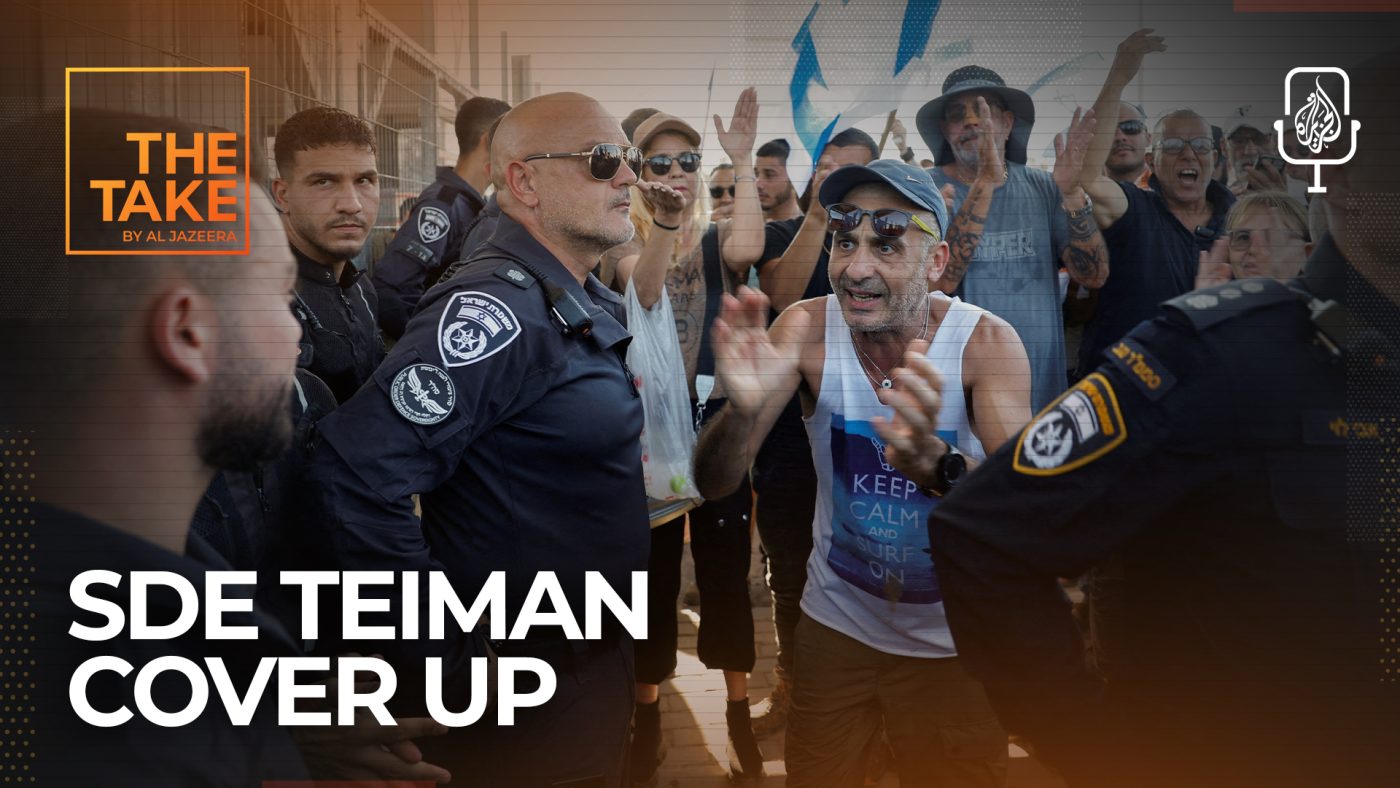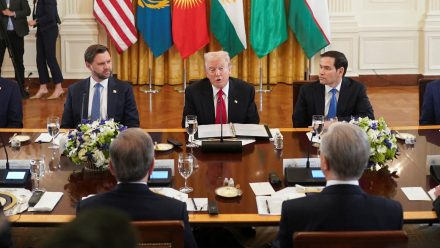A video showing Israeli soldiers raping a Palestinian prisoner has shaken Israel’s military and judiciary, leading to the arrest of the prosecutor who leaked it. But as the fallout centres on the leak, and not the events in the video, what does it mean for the victim of the so-called Sde Teiman affair?
Published On 10 Nov 2025
The Sde Teiman affair erupted into public view after a graphic recording — circulated internally within parts of Israel’s security and legal establishments before reaching the public sphere — appeared to show multiple soldiers assaulting and sexually abusing a bound Palestinian detainee. The immediate official response focused less on the substance of the footage and more on its provenance: how it left secure channels, who had access to it, and who had transmitted it outside the closed process.
That line of inquiry led to the arrest of a military prosecutor accused of leaking the video. The prosecutor’s detention and the criminalisation of the leak have dominated headlines and courtroom debate. Investigations into procedural breaches within the prosecution service and the armed forces have intensified. Yet the central, painful question — what happened to the man in the video and whether those who appear to have committed sexual violence will be held to account — has receded from public scrutiny.
Why the leak became the focal point
Several factors help explain this shift. Military and judicial institutions often treat the protection of classified material and chain-of-custody as essential to preserving the legitimacy of their processes. When evidence circulates outside authorised channels, defence lawyers and senior officers can argue that prosecutions are tainted, that the rights of the accused were breached, or that the material cannot be relied upon in court.
For ministers, senior officers and prosecutors, a leak is an embarrassment that threatens institutional control. For the public and the media, it is a story about secrecy, betrayal and the integrity of the system. These elements are politically and legally combustible, and they are easier for officials to contest — by pointing to broken procedures and breaches of trust — than allegations of sexual violence that implicate the state’s own agents.
The result is a narrowing of focus: the perpetrator of the leak is pursued vigorously; the status of the evidence and the process used to obtain it become the battle lines; and the underlying allegations against soldiers move to the margins.
Consequences for the victim
For the alleged victim in the video, the institutional pivot toward the leak has immediate and damaging consequences. First, the person’s trauma and rights are sidelined. Public debate about evidence handling does not provide medical care, psychological support, legal protection, or redress for bodily and psychological harm. When accountability is reframed as an internal procedural question, the victim’s agency and voice are easily eclipsed.
Second, the criminalisation of the leak can chill other potential whistleblowers or witnesses who might come forward with corroborating evidence, fearing arrest, prosecution or professional ruin. That creates a perverse disincentive to truth-telling, which in turn undermines the possibility of a comprehensive, victim-centred investigation.
Third, official emphasis on preserving evidence for court can paradoxically delay or obstruct immediate protections for survivors, such as forensic examinations, safe housing, medical treatment or witness protection. When systems designed to uphold justice prioritise evidentiary purity over survivor welfare, procedural concerns can obstruct timely care.
Military justice and accountability
The Sde Teiman case sits at the intersection of military justice culture and a judiciary that is often accused by critics of insulating security personnel from civilian scrutiny. Military courts and internal probes have historically been criticised by human rights groups for low rates of indictment and conviction in cases involving security personnel accused of serious human-rights violations. The prominence of the leak case may reinforce public perceptions that the system protects its own.
Compounding this are structural obstacles: hierarchies that discourage junior personnel from reporting abuses, legal frameworks that prioritise operational security, and political pressures that can influence prosecutorial choices. Each of these creates a barrier to transparent, impartial investigation.
Legal and ethical dilemmas
The legal complexity is real. Evidence tainted by improper handling risks exclusion in court; improper disclosure can violate the legal rights of defendants; and leaks can jeopardise ongoing operations or the safety of informants. But legal complexity does not absolve authorities from their obligation to investigate credible allegations of sexual violence thoroughly, transparently and with respect for the rights of victims.
Ethically, the prioritisation of institutional reputation over survivor welfare raises difficult questions about the moral responsibilities of state actors. The optics of a harsh response to a leak while the underlying allegations remain unaddressed feed narratives of impunity and institutional self-preservation.
What a victim-centred response would look like
A victim-centred approach would separate necessary procedural enquiries about the leak from immediate and robust actions to protect and assist the alleged victim, and to investigate the alleged crime itself. Practical measures include:
– Immediate medical and psychological care for the alleged victim, with independent health professionals documenting injuries and needs.
– Secure, independent forensic examination conducted in accordance with international standards to preserve evidence for prosecution without compromising the victim’s dignity.
– Confidentiality and safety measures, including protection from retaliation or intimidation for the victim and for witnesses.
– An independent, impartial investigation body with the mandate and capacity to examine allegations against security personnel, free from conflicts of interest.
– Transparent public reporting on steps taken and on the status of investigations, while safeguarding legitimate privacy and security concerns.
International and domestic pressure
International human-rights bodies, foreign governments and local civil-society groups typically play a role in pushing for accountability when national systems appear to prioritise institutional protection over victims’ rights. Diplomatic pressure, independent monitoring, and media scrutiny can help keep the focus on the substance of abuses, not merely on how evidence was handled.
Domestically, the balance between protecting classified information and safeguarding justice depends on legal safeguards, judicial oversight and an engaged public discourse. Civil society organisations and legal advocates can press for reforms that ensure leaks cannot be used as a pretext to avoid investigating allegations of serious wrongdoing.
The larger stakes
The Sde Teiman affair is more than a single scandal: it is a test of how a state treats allegations of sexual violence by its agents and how it balances the imperatives of security and accountability. If the principal energy of the response is directed at punishing those who exposed the alleged crime rather than those accused of committing it, the message to victims and the public is clear: institutional reputation may trump individual justice.
For the person shown in the video, the danger is not only that justice may be delayed or denied but that their voice and suffering will be eclipsed by debates about procedure. For society, the danger is erosion of trust in institutions that must both protect security and uphold the rule of law.
The way forward requires separating necessary procedural scrutiny of leaks from the imperative to investigate and address allegations of abuse. Absent that separation, the victim risks becoming the invisible casualty in an institutional contest over secrecy and control.


